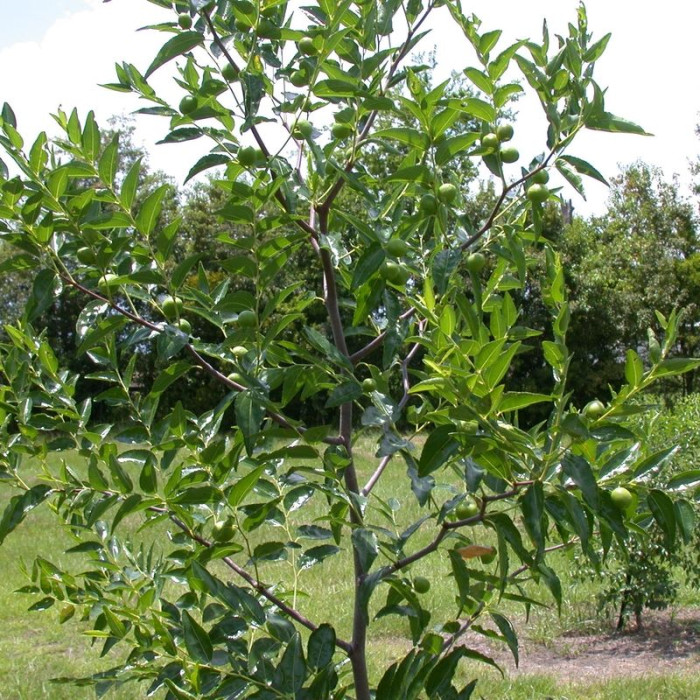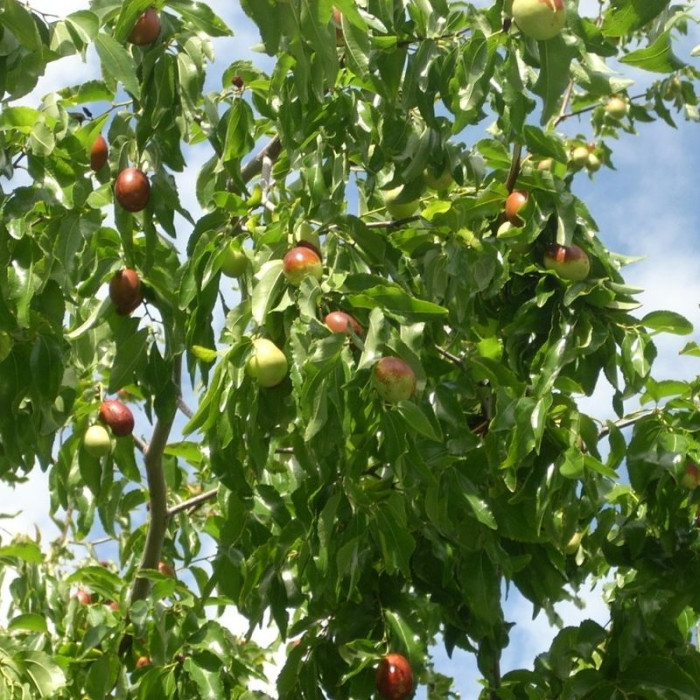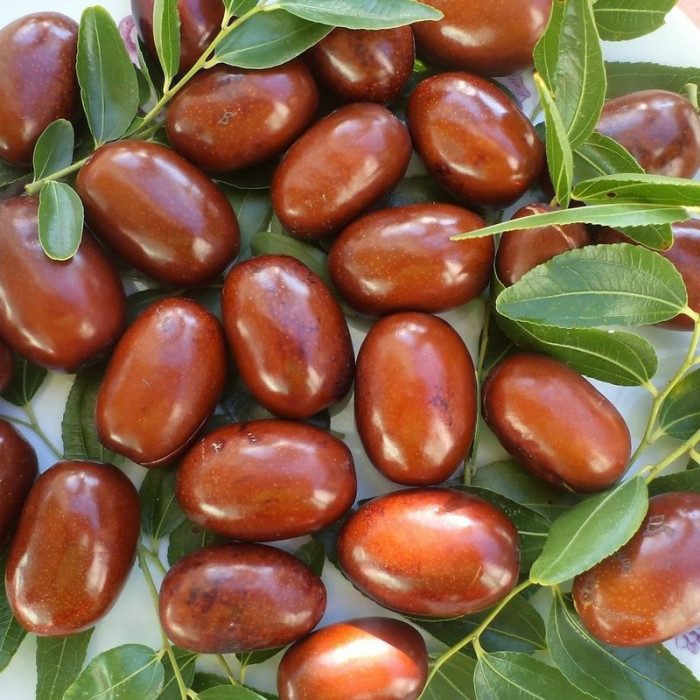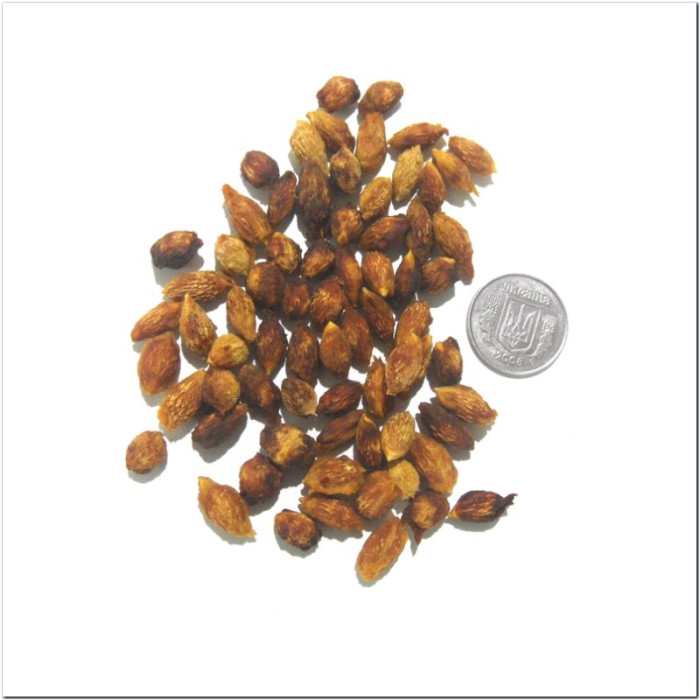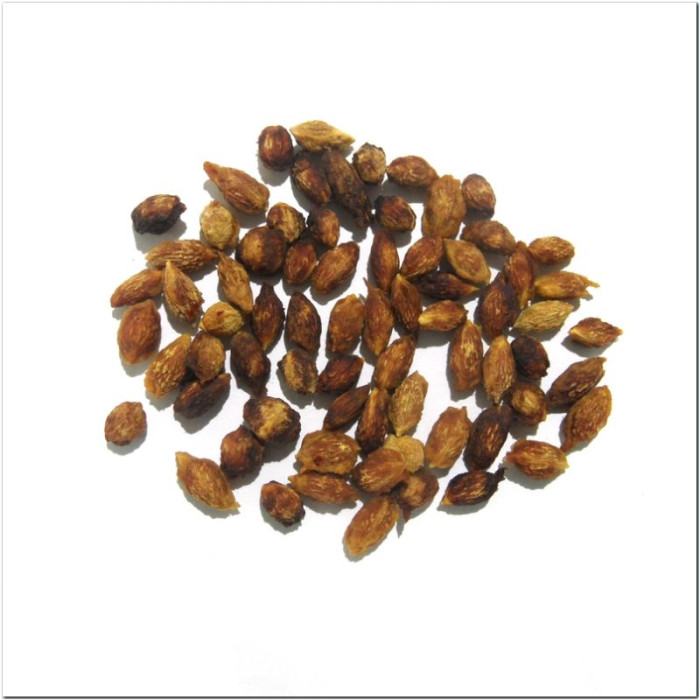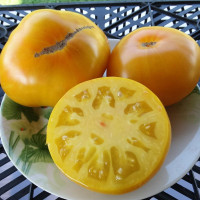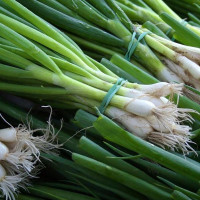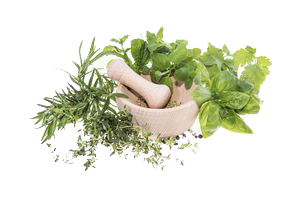Jujube and also called red date, Chinese date, and Chinese jujube / Ziziphus jujuba
The closest relative of the buckthorn. This plant is known by the Japanese name "unabi", sometimes it is called "jujuba", "chinese date" and "jujuba". Sometimes jujube is confused with a date, but unabi is the fruit of a shrub, and a date is the fruit of a palm tree. Yes, and the beneficial properties of dates are slightly different from the properties of jujube.
The fruits of the jujube shrub are oblong, fleshy, with a stone and a dense shiny skin, have a delicate and pleasant taste.
Ziziphus is surprisingly useful, not only berries are used for therapeutic purposes, but also bones, bark, leaves and roots. Ripe jujube berries are fragile, the peel quickly bursts and the jujube begins to deteriorate, losing its beneficial properties. Amateur gardeners are mastering the technique of growing zizphius in a temperate climate, and ripe berries can often be found on the market.
Compound
Unabi contain many vitamins, microelements and other useful substances - ash, catechins, tannins, organic acids, sugars and pectin. According to the content of vitamin C, jujube is ahead of lemons. It contains carotene, tocopherol, thiamine and riboflavin, flavonoids.
Planting jujube
- For cultivation in our climatic conditions, it is desirable to choose varieties with early fruit ripening. In this way, the crop can be harvested before the onset of autumn frosts.
- Jujube loves warmth and good lighting. Make sure you protect it from the wind.
- Even slight shading negatively affects the development of the plant. Growth slows down, yields fall.
- Zizifus refers to cross-pollinated plants, so several varieties should be planted on the site at once.
- To the soil, jujube is unpretentious. However, the best substrate for this plant is loam. Excessively fertile soil stimulates unwanted growth of the trunk and branches, to the detriment of fruiting. Excessively poor soil reduces productivity.
- The best time for planting jujube is March-April for the southern regions of our country, or April-May for the rest. The vegetation of the plant begins late, so planting can be safely postponed until significant warming. Autumn planting is also welcome, if autumn turned out to be warm. But, it is necessary to plant two months before the onset of frost.
- To plant a seedling, it is necessary to prepare in advance a planting hole with a depth and a diameter of 1 meter.
- The substrate for sprinkling the rhizome is prepared with the addition of manure or humus.
- After planting, seedlings should be watered abundantly.
Jujube care
- In the first year after planting, jujube grows at a rather slow pace.
- The plant is drought-resistant and heat-resistant, so it tolerates long periods of lack of rain without problems.
- When grown in our climatic zone, jujube is more frost-resistant than some grape varieties. A young plant can withstand temperatures down to -25°C, an adult plant - up to -30°C.
- Particular attention to the plant should be shown in the first autumn after planting. The seedling does not always have time to properly strengthen itself by winter. It is necessary to sprinkle the trunk with earth to the maximum possible height. A good option for frost protection is tying with dry corn stalks. In the future, the need for protection from frost disappears.
- Even if the plants are damaged by frost in winter, the plant recovers very well. Spring frosts do not threaten him, since the growing season of jujube begins after them.
- It is recommended to start pruning the plant only a year after planting. Molding provides for a trunk up to 70 centimeters high. Three or four skeletal branches are left at this mark.
Harvest and storage of jujube
- The ripening of jujube fruits occurs in September-November. The fruits should be harvested gradually.
- Fresh fruits of jujube are stored for a month.
- Ziziphus is a real storehouse of microelements and vitamins.
- In addition to fresh consumption, the fruits can be dried, processed into candied fruits, jams, compotes.
- In dried form, the fruits of jujube do not lose their qualities for up to two years.
- In addition to useful properties, jujube fruits are high in calories. They are suitable for adding to dough and baking bakery products.

No questions about this product, be the first and ask your question.



